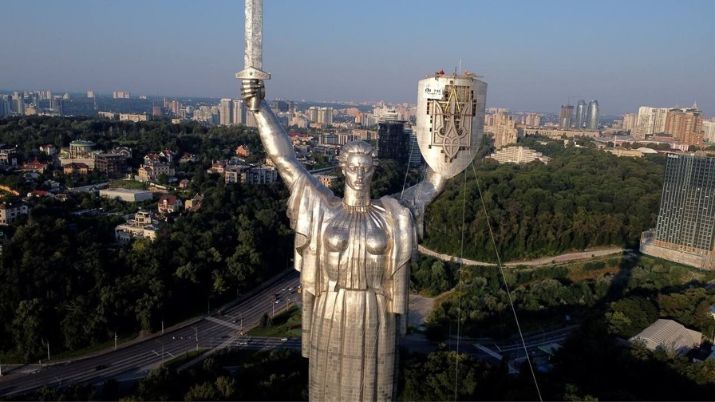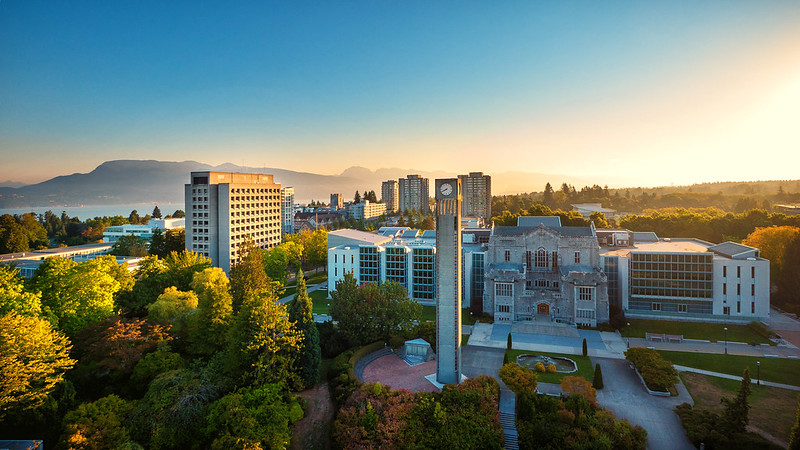

UBC Flickr
This fall, The Department of Central, Eastern and Northern European Studies (CENES) is thrilled to be adding several new courses to our 2024-25 schedule.
September is still a few months away, but with winter registration just around the corner, it’s never too early to start thinking about which courses to add to your timetable. This year, CENES welcomes its seventh language, Yiddish Foundations. We will also be offering various courses that can fulfil requirements for a BA in Arts (i.e., literature), or a major/minor in German, Modern European and Nordic Studies, and Russian.
Read further to learn more about our new courses being offered this 2024-25 season, or check out our CENES Blog for more information of which courses CENES will be offering, sample syllabi, and more.
Yiddish (YDSH)


Jewish Musician, Anthony Mordechai Tzvi Russell. Image from heyalma.
YDSH 101 & YDSH 102 | ייִדיש
CENES is thrilled to introduce Yiddish language courses for UBC students—in a flexible, multi-access format. Our 3-credit courses will cover the foundations of the language and connect students to Yiddish music, film, and literature. Says Faith Jones, of the Vancouver School of Yiddish Translators: “When somebody speaks to me in Yiddish, I really feel it as an act of great care and great love.” Come join the new community of UBC students learning, loving, and finding joy and meaning together in Yiddish, a thousand-year old European Jewish language with a bright future! (Photo of Anthony Mordechai Tzvi Russell, making Yiddish poetry and music).
YDSH 101 & YDSH 102 may be counted towards the Language as Meaning breadth requirement for UBC Arts beginning Winter 2024.
Slavic Studies (SLAV)


SLAV 307A 201, In the Shadows of War: Slavic Cultural Landscapes
Do you hate war, want peace and are willing to do the thinking that precedes the abolition of war? Then this course is for you. It maps out the present-day terrain in the life of Slavic countries, where violent conflicts, transformed by technologies, blur the traditional borderlines between war and peace. The course teaches how to think about war by exploring its artistic representations in authentic prose, poetry, film, and song in English translation. The answers to be found can determine the major course of our lives and the lives of those who come after us.
SLAV courses may be counted towards the Humanities and Creative Art breadth requirement for UBC Arts beginning Winter 2024.
German Courses (GMST taught in English, GERN in German)


The Karl Marx credit card. Image from NPR.
GMST 420A 201, Capital and Commentary: Critiques
Questioning dogmatic assumptions about ‘Marxism’, ‘socialism’, and ‘historical materialism’, this course examines how Marx’s critique of political economy in his masterpiece, Capital, was itself criticized and creatively read by intellectuals in a variety of disciplines since the late 19th century. We’ll consider how Marx’s classic ideas about the commodification and mechanization of culture (Benjamin and Lukàcs), class conflict and social discipline (Simmel and Weber) have been revised and expanded by feminist, queer, post-structuralist, and ecological critics to account for the racialized, gendered, sexualized, and colonial character of capitalist exploitation on multiple scales. CENS 201: Capital and Contexts is recommended, but not required!


GMST 424 201, Drugs, Dams and Aliens: Engineering Dreams and Cosmic Conspiracies
Cross-listed with GMST 521. The course will concentrate on a strange mix of conspiracy theories and outlandish mega-projects that emerged in the early 20th century. Some were ridiculous, some explicitly genocidal; some have disappeared, others are still with us or have recently returned. We will discuss their cultural and historical origins and how they are related to totalitarian visions of control and a radical reconstruction of the world and even life itself. Note: This course is taught in English. As GMST 424 is the permanent replacement for GERM 408, students can receive credit for only one of the two.


GMST 475 201, Games for Decolonization and Social Justice
This course examines the intersections between digital and analog gaming cultures and the work of social justice. Students will explore various approaches to video games, tabletop games, and tarot including game design, game play, and fan cultures to examine how gaming cultures, on the one hand, perpetuate bias, prejudice, and problematic power dynamics and, on the other, are capable of intervening in discourses of oppression, heteronormativity, and settler colonialism. Through the production of mini-games and game prototypes that strive to meet the needs of self-identified social-justice goals, this course will foster students’ ability to critically analyze the societal impacts, representations, narratives, and game mechanics embedded within a variety of gaming cultures.
GMST courses may be counted towards the Humanities and Creative Art breadth requirement for UBC Arts beginning Winter 2024.
Central, Eastern and Northern European Studies (CENS)


Photo by Maximilian Scheffler, Unsplash.
CENS 201 101: Capital and Commentary: Contexts
Marx’s Capital (Das Kapital) is arguably the best known book in the canon of European Studies, and yet also the least read! The challenge, or wager, of this course is to read Capital as a literary, philosophical, sociological, historical, political and economic experiment in thinking otherwise about our past, present, and future. Together we’ll explore how Marx’s passion for both interpreting and changing the modern world speaks to his own context as well as to ours, with a focus on his ideas about class exploitation, settler colonialism, the gendered division of labour, chattel slavery, economic crises, and ecological breakdown. Knowledge of languages other than English, including but not limited to German, is an asset but not a prerequisite!


CENS 202 102: Lying, Deception, and Manipulation in Interpersonal and Mass Contexts
If you are a curious mind, join this course to sharpen your critical thinking skills and enhance your ability to navigate an increasingly deceptive present-day life. This course views the intricate world of falsehoods through interdisciplinary lenses, examining the psychology behind lying, the mechanics of deception and ways of detecting it, historical contexts, ethical dimensions, and modern-day manifestations of manipulation as well as the proliferation of disinformation in contemporary political and media landscapes.


CENS 202 201: Gender & Sexuality in Central, Eastern, and Northern European Literature and Culture
In this course, we will explore how discourses on gender and sexuality shaped and were shaped by 19th- and early-20th-century literature and culture. We will read select short prose, drama, and novels from central, eastern, and northern Europe. We will consider how these works relate to emergent sexological writings, women’s rights debates, emergent modern subjectivities (e.g., new woman, queer), and political movements. Throughout the course, we will also consider the relevance of these literary traditions for our current moment.
CENS courses may be counted towards the Humanities and Creative Art breadth requirement for UBC Arts beginning Winter 2024.


